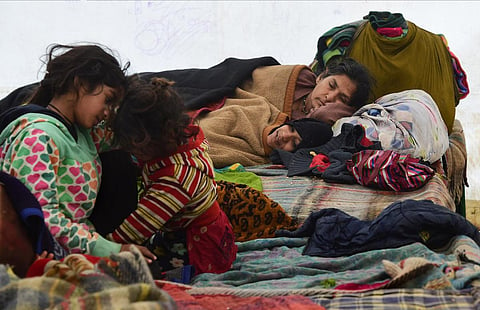

NEW DELHI: Despite the Delhi government’s recent launch of a winter action plan aimed at supporting the homeless, significant gaps in infrastructure persist, particularly in areas around AIIMS.
A daily occupancy report by the Delhi Urban Shelter Improvement Board (DUSIB) listed 35 tents with a combined capacity of 350 people near AIIMS. However, a spot check on Wednesday revealed that none of these tents had been erected, leaving many homeless individuals exposed to the cold and dangerous air pollution.
The area around AIIMS is already a hub for families of outstation patients who are seeking medical treatment but are unable to afford nearby accommodations. As a result, many people end up sleeping on footpaths, under flyovers, or in other open spaces.
A representative from the agency responsible for the tents mentioned that about 10-12 tents, with a total capacity of 800, would be set up the next day. “Our total capacity will not be enough to accommodate the thousands of people in need of shelter around the hospital, but we lack proper space to set up additional tents,” he said.
During the pandemic, a permanent shelter structure in the area had provided accommodation for up to 250 homeless individuals, but it has since been removed.
In the absence of adequate shelter, individuals are forced to endure harsh conditions. Night-time temperatures have dropped to as low as 11°C, and the already dangerous air quality, worsened by traffic congestion and dust on the main roads, poses a significant health risk to those sleeping outdoors.
The government’s winter action plan to support the homeless includes setting up 200-250 waterproof, fire-retardant pagoda tents to accommodate around 2,000 people.
Ground reality: Noble ideas, no action plan
The government’s winter action plan to support the homeless includes setting up 200-250 waterproof, fire-retardant pagoda tents to accommodate around 2,000 people. This is supposed to supplement the 197 shelters already operated by the Delhi Urban Shelter Improvement Board, which currently house 7,092 individuals. The initiative is backed by a Rs 3 crore budget and runs from November 15, 2024, to March 15, 2025. Additionally, 16 teams are to be formed to operate between 10 pm and 4 am, rescuing homeless citizens from open spaces and transporting them to shelters or hospitals.